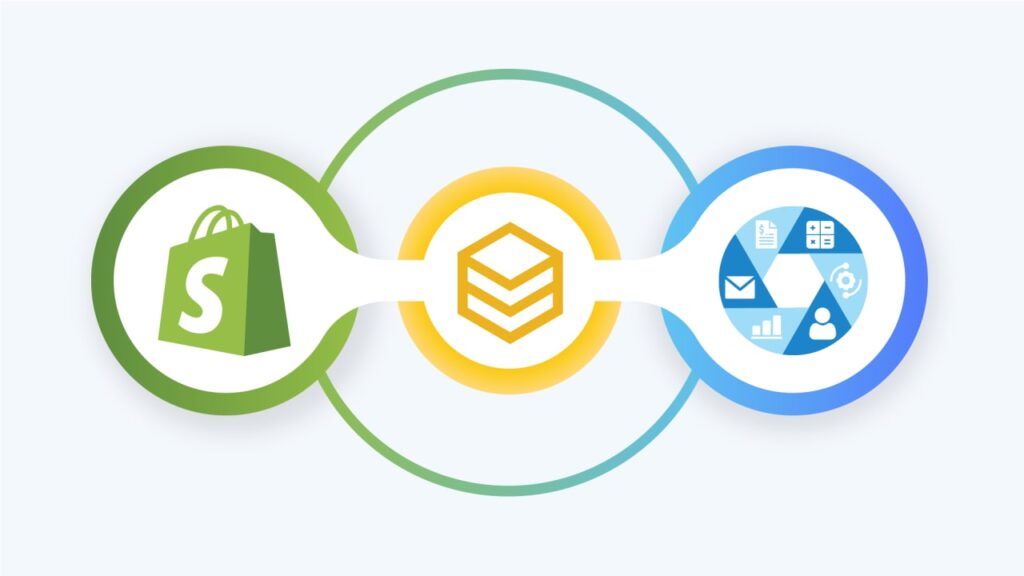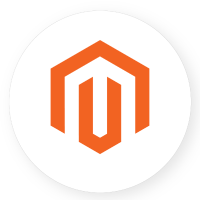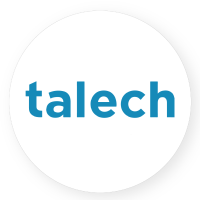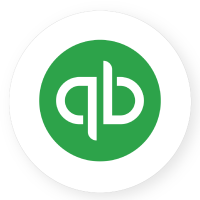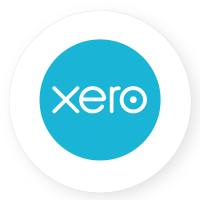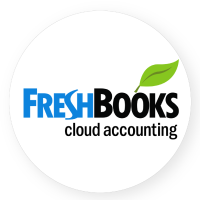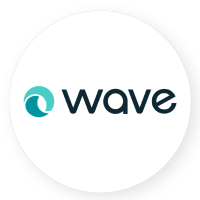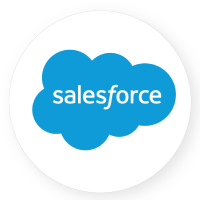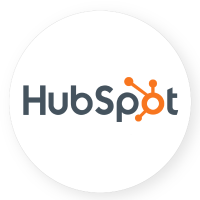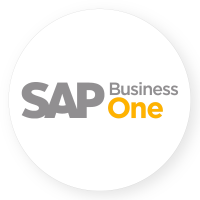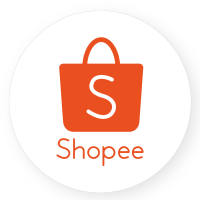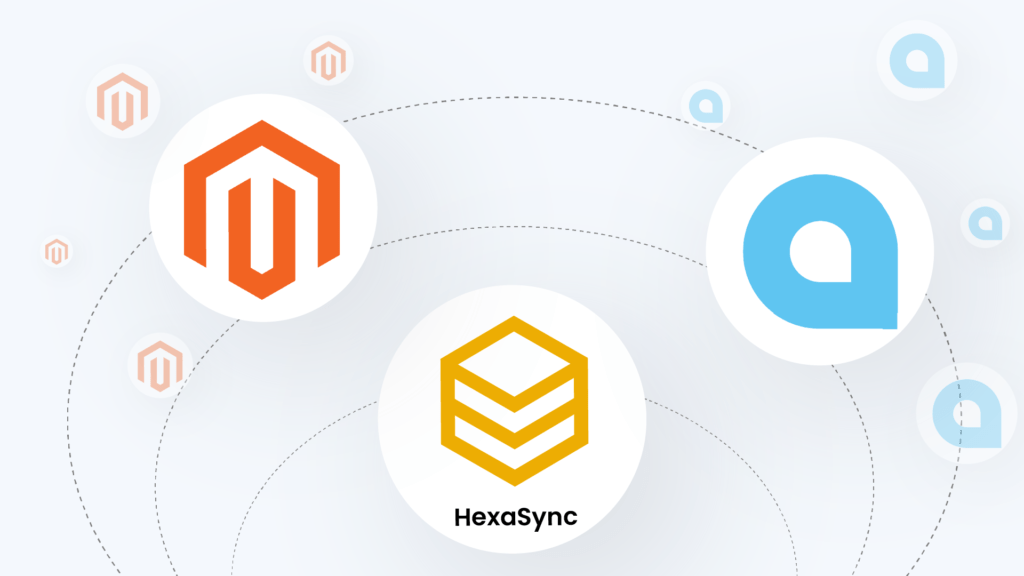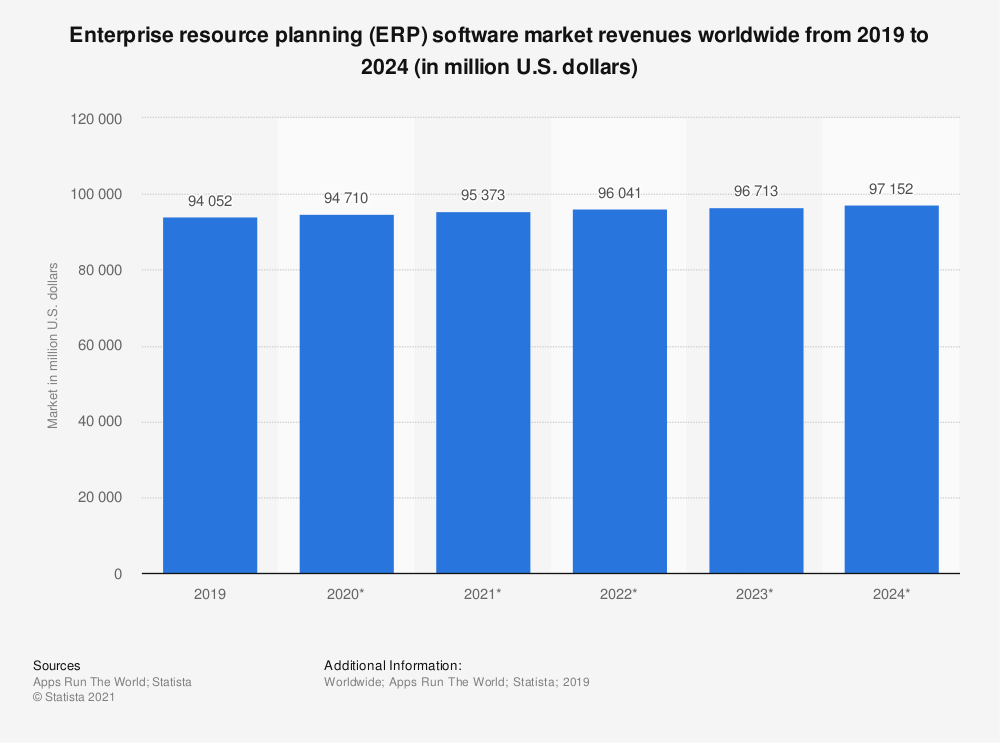As your Shopify store grows, you’ll need to add new technology to your eCommerce platform. Like adopting an ERP system to streamline data flow across platforms and eventually increase revenue.
Popular ERP systems come up with different functionalities and plans. I will show you everything you need to know about ERP systems and choosing the best solutions for your Shopify store.
Table of Contents
What is ERP?
ERP stands for Enterprise Resource Planning. It is a type of software that companies use to manage their main business processes such as accounting, procurement, project management, risk management and compliance, and supply chain operations.
List of popular ERP systems
Why does your company need an ERP system?
No matter your company is a small or medium business, a mid-market company, or a large enterprise, different departments in your company need to communicate and share information with the rest of the company. An ERP system will make it easier for your organization to communicate because it can help different systems from different departments in your company to be accessed through one application with one interface and make your business more organized.
You can read a 2020 update of ERP to have a deeper understanding of it here.
Worldwide ERP software market size 2019-2024
According to Statista, The global enterprise resource planning (ERP) software market is forecast to grow to around 97 billion U.S. dollars by 2024. SAP and Oracle are two of the leading vendor in the market.
What is Shopify ERP Integration?
Shopify ERP Integration is a process of integrating your Shopify online store with the company’s internal business systems. It allows you to synchronize your Shopify inventory with the inventory of your ERP database system automatically.

Hundreds of thousands of entrepreneurs from over 175 countries trust Shopify to help sell their products. If your company is using Shopify as one of your online selling platforms, once your business grows, you may face troubles with order fulfillment.
In addition to that, you will find difficulties in managing product catalogs, suppliers, etc. Because you need to continuously keep track of your inventory, manual stock inventory and other core stocks will be an overwhelming task.
Meanwhile, increasing HR costs despite a low ROI rate by maintaining your business manually is definitely not a good option here – it is time for you to look for an ERP system and integrate it with your Shopify store.
Benefits of Shopify ERP Integration
Online businesses powered by Shopify create lots of data that merchants have to process and organize. This data processing and organizing can be time-consuming. The traditional way to handle all of those processes can make data entry become a bottleneck of your business process. Integrating Shopify with your ERP system (or any business management system like CRM, accounting, etc.) will help you solve several problems.
Time and Costs
As your business process runs automatically, your employees can avoid wasting time on data-relating tasks, reduce their workloads, and focus their activities on sales and customer service.
Fewer possible errors in data exchange
Normally, your staff will have to hand-key online orders, inventory counts, item updates, and customer data. This takes a lot of processing time and is prone to human errors. By integrating your systems, you can expect fewer errors in the process of data exchange by getting rid of problems related to human factors.
Relevant data
When your business processes are automated, data is synchronized and your inventory is continuously updated, it ensures information for both store visitors and company sellers as well as other parties. Relevant data is crucial to strong business strategies, store optimization, and building better relationships with customers.
More revenue
Not have to depend too much on labor workers, your eCommerce store can go in a 24/7 operation, so you can sell your products even in non-business hours. Furthermore, orders pile up during sales off time and holidays are no longer a pressure to you.
General speaking, implementing a Shopify ERP integration is a long-term investment to streamline your organization. Any merchant would love to see their business grows with more orders and turnovers, so having your Shopify store integrated with your business management system like ERP is one thing that you will want and need to do sooner or later.
How to choose an ERP solution?
It is essential to have your Shopify store integrated with an ERP system. Before implementing a Shopify ERP integration project, you need to understand what your pain point is to choose a suitable ERP for your business needs.
Some factors you need to consider when choosing an ERP for your Shopify store are:
- Your business needs – What questions do you want to answer with your ERP solution?
- Your company size – Is your organization a small or medium-sized business, or a mid-market company? How many users will be allowed to use the system?
- Your budget – How much money are you willing to spend on a Shopify ERP solution?
- The user adoption of the ERP solution – Is it easy or difficult to adopt the new system?
- The agility and flexibility of the ERP solution – Will it be able to adapt to changes in the long run such as a new phase of development or a new product?
- The support and assistance from the ERP provider – Make sure that you will have good support available during the time of using an ERP system.
These factors are just a start to what you should consider when evaluating popular ERP systems.
Top ERP Solutions for Shopify
If you have read our post about Top 10+ ERP software in 2021, there will be familiar names to you in the list of ERP systems to integrate with Shopify below.
1. Microsoft Dynamics 365
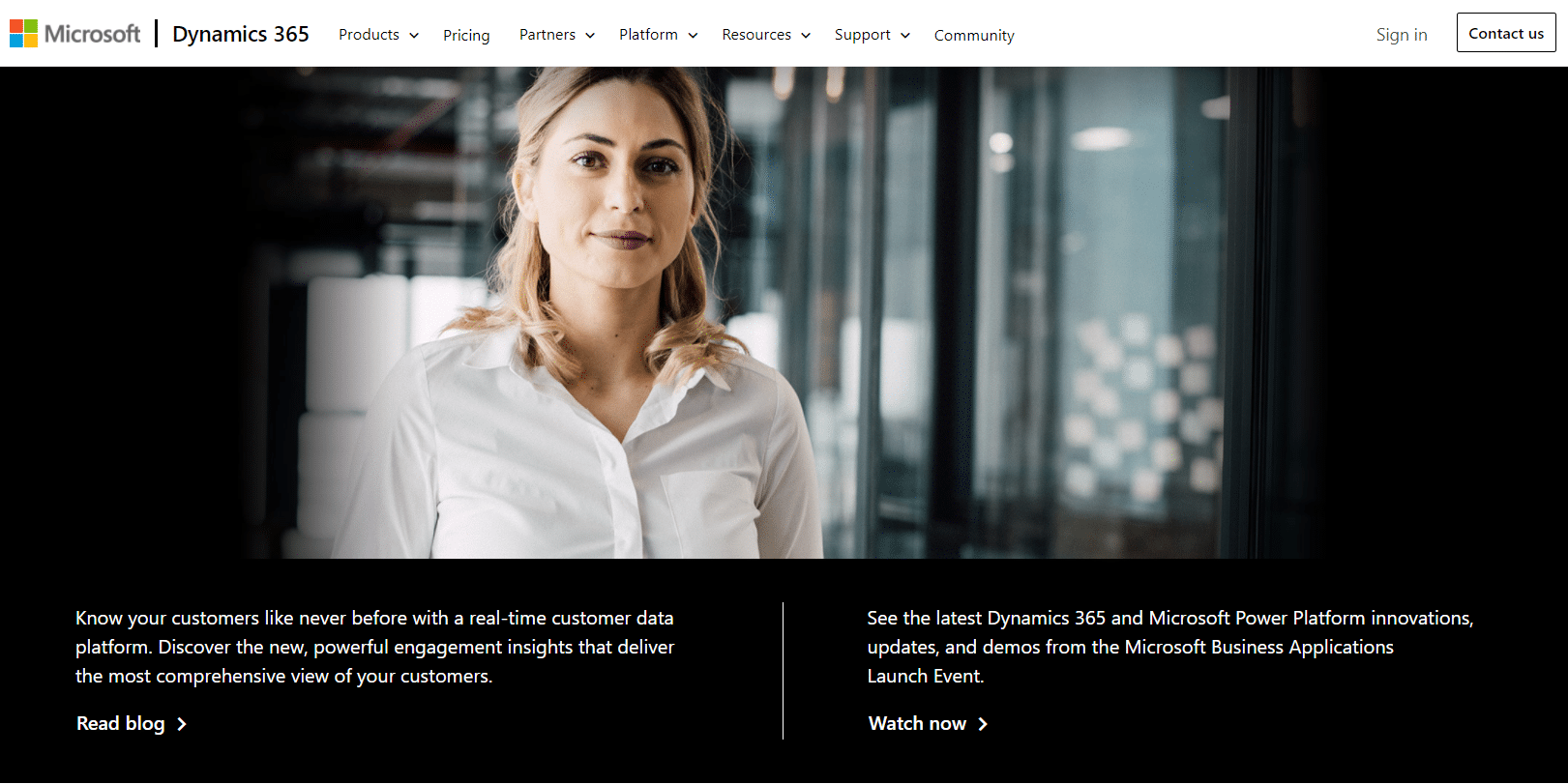
Microsoft Dynamics 365 is a product line of enterprise resource planning (ERP) and customer relationship management (CRM) applications introduced by Microsoft Corp. It is a cloud-based ERP as well as a CRM solution that offers AI and mixed-reality tools, with flexible pricing options.
Main features
Dynamics 365 mainly supports the following modules:
- Finance and Operations
- Retail
- Talent
- Sales
- Customer Service
- Project Service Automation
- Field Service
- Marketing
Pricing
- Sales – $65 per user, per month (Professional) or $95 per user, per month (Enterprise)
- Marketing – 10,000 contacts for $1,500 per month (stand-alone) or $750 per month (if company also uses other Dynamics 365 apps)
- Customer Service – $50 per user, per month (Professional) or $95 per user, per month (Enterprise)
- Commerce – $180 per user, per month
- Relationship Sales – $130 per user, per month (10 user minimum)
- Sales Insights – $50 per user, per month
- Customer Insights – $1,500 per tenant, per month for up to 100,000 profiles
- Customer Service Insights – $75 per user, per month for up to 100,000 cases
- Project Service Automation – $95 per user, month
- Field Service – $95 per user, per month or $65 per user, per month (remote assist)
- Human Resources – $120 per user, per month
- Finance -$180 per user, per month
- Business Central – $70 per user, per month (Essentials) or $100 per user, per month (Premium)
- Layout – $95 per user, per month
Review
| Pros | Cons |
|---|---|
| Extensive CRM functionality and integration with Microsoft products and LinkedIn LinkedIn Sales Navigator. | Difficult to navigate for beginners and limited mobile app features. |
2. NetSuite
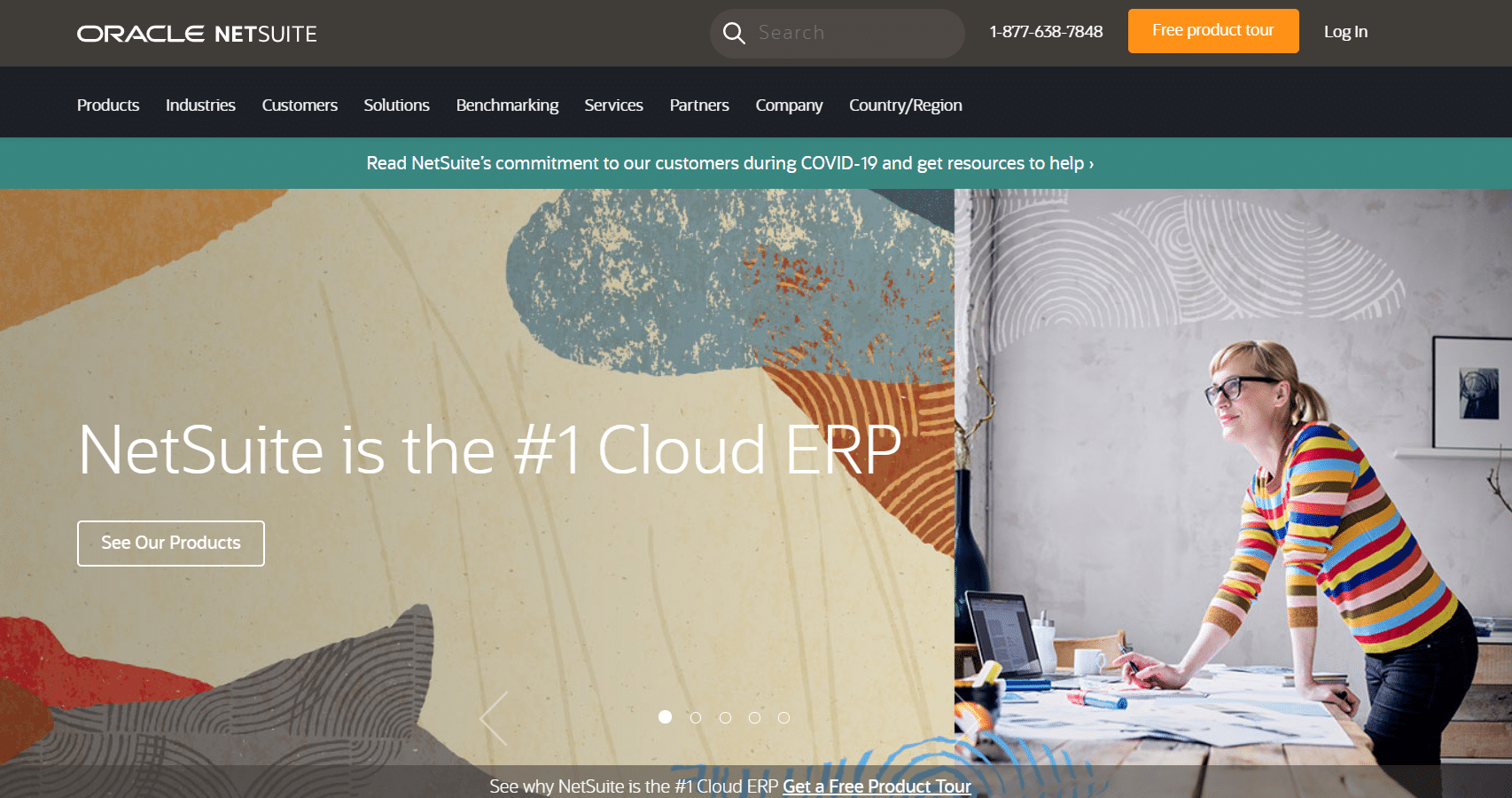
NetSuite is a cloud ERP solution, providing a suite of applications, from accounting and financial planning to warehouse management, eCommerce, inventory management, and beyond. Up to now, it has been used by more than 21,000 customers in 200+ countries.
Main features
- Accounting
- Fixed Asset Management
- Payment Management
- Demand Planning
- Inventory Control and Warehouse Management
- Purchasing and Vendor Management
- Manufacturing
- Billing Management and Invoicing
Pricing
NetSuite’s price is tailored to each customer, predicated on a set of givens, including ERP configuration, required add-on modules, total user count and contract length. Its base license costs $999 per month with access costs of $99 per user, per month.
Review
| Pros | Cons |
|---|---|
| NetSuite’s breadth affords robust functionality, and its scalability gives it long-term value as a company grows. | Integration bugs with third-party platforms have been known to cause downtime and NetSuite does not offer an on-premise version. |
3. SAP Business One
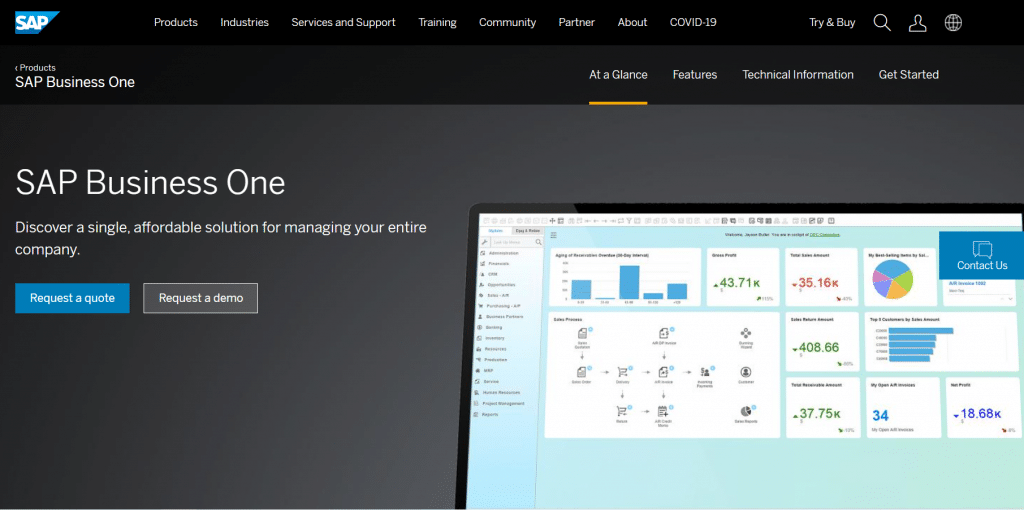
SAP Business One is a software designed to help small businesses with operating and driving profitable growth. It is one of the most comprehensive business applications for small and medium enterprises with the complete functionalities for each stakeholder. SAP Business One supports best at Accounting, ERP Systems and Discrete ERP.
Main features
- Financial Management
- Sales and Customer Management
- Purchasing and Inventory Control
- Business Intelligence
- Analytics and Reporting
Pricing
SAP Business One is sold through authorized partners. Companies license and pay for the number of users they have at any given time.
Review
| Pros | Cons |
|---|---|
| Users can connect to and run queries from multiple data sources at the same time, allowing them to multitask and simplify a workload. | The user interface could be improved, and users say that it has a tendency to run slowly. |
4. Sage 100cloud
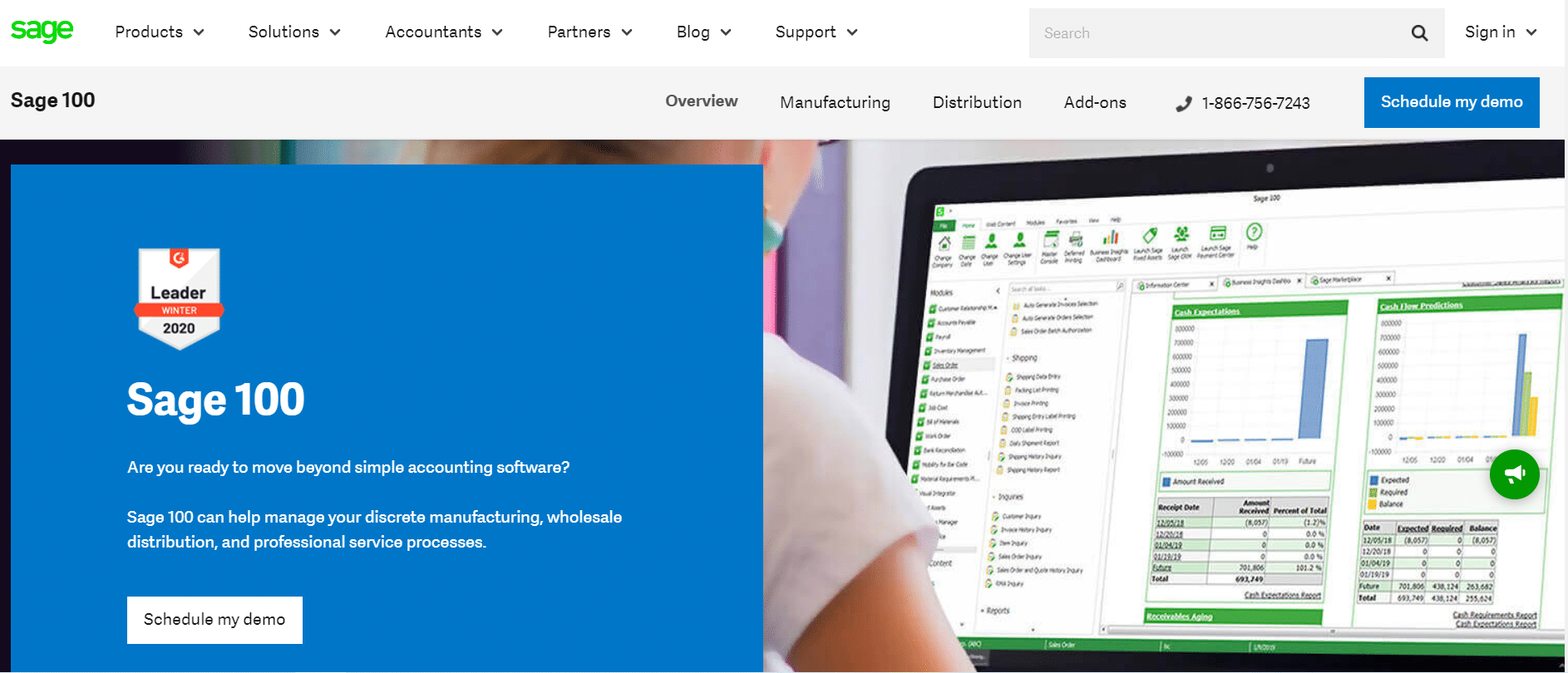
Sage100cloud (formerly Sage 100c/Sage 100 ERP) is geared mainly toward small and medium manufacturers, distributors and retailers that need to automate processes, connect employees and gain business insights when they need them.
Main features
- Accounting and Finance
- Business Intelligence and Reporting
- Sales and Customer Management
- Purchasing and Supplier Management
- Inventory Management and Warehousing
- Manufacturing
Pricing
Sage 100cloud pricing is not available on the Sage website. Pricing depends on which package and add-ons a company selects. Adding users will increase the total cost, but reduce the per-user price.
Essentials package: $50 per user, per month, billed monthly:
- 1-5 users: $50/user/month
- 6-10 users: $47.50/user/month
- 11-25 users: $45.00/user/month
- Over 25 users: $40/user/month
Advanced package: $61.11 per user, per month, billed monthly:
- 1-5 users: $61.11/user/month
- 6-10 users: $58.06/user/month
- 11-25 users: $55.00/user/month
- Over 25 users: $48.89/user/month
Complete package: $66.67 per user, per month, billed monthly:
- 1-5 users: $66.67/user/month
- 6-10 users:$63.3/user/month
- 11-25 users: $60.00/user/month
- Over 25 users: $53.33/user/month
Review
| Pros | Cons |
|---|---|
| Easy setup, simple user interface, intuitive navigation, scalable | Sometimes slow response from customer support for troubleshooting tickets; challenging customizations, including reports |
5. Acumatica
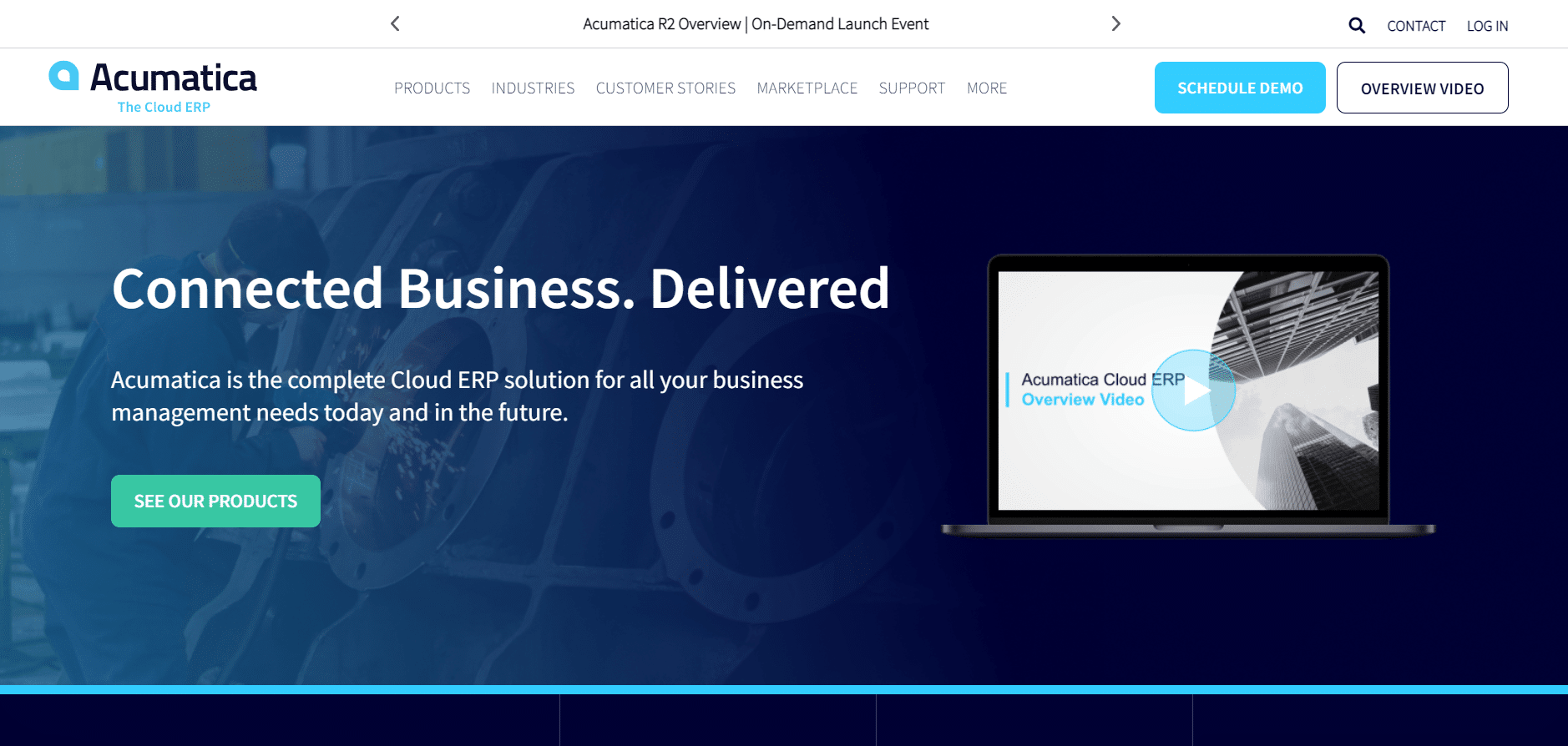
Acumatica is a robust enterprise resource planning (ERP) solution that offers a complete suite of modern business applications tailored to various industries, including manufacturing, accounting, distribution, retail, and commerce.
Key features
- Business Intelligence (BI)
- Distribution Management
- Project Accounting
- Commerce
Pricing
Acumatica determines a customer’s cost by looking at the features and resources chosen, not the number of individuals who use the system. Pricing is based on the following three factors:
- Which applications does a client want to start using right away?
- What license is the client considering: private cloud, SaaS or private perpetual?
- What is a client’s projected consumption level based on their data storage and business transactions?
Review
| Pros | Cons |
|---|---|
| Business intelligence, comprehensive reporting, several deployment options. | Pricey direct support, users must go through multiple steps for simple processes. |
As an official partner of Acumatica, we can help you integrate your Shopify eCommerce platform or any online sales channel with Acumatica ERP and tackle its disadvantages to make it suit our business needs.
6. Infor ERP
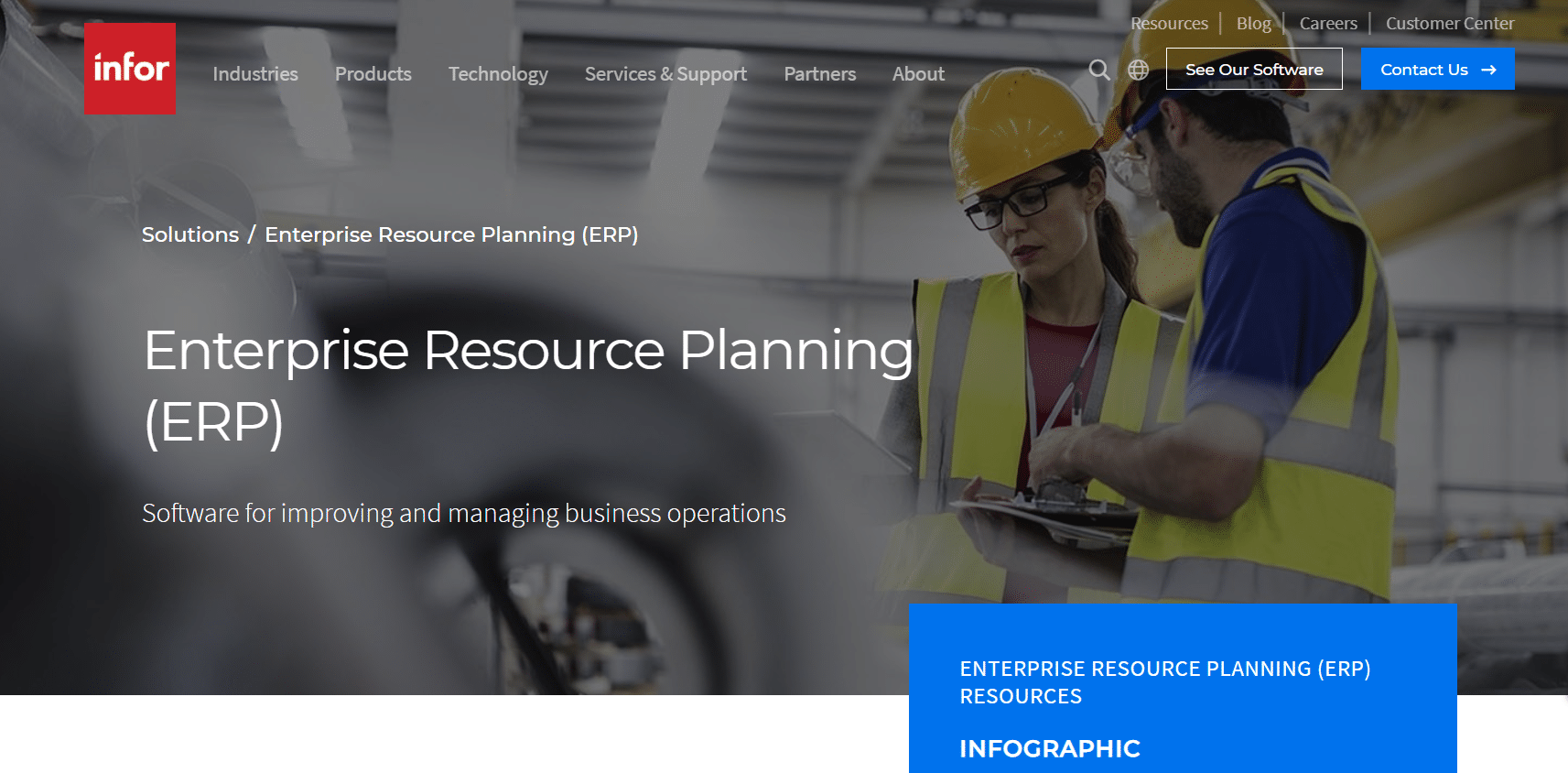
Infor ERP is a robust suite of enterprise resource planning (ERP) applications designed to help distribution and manufacturing companies run core business operations. Its main ERP offering includes CloudSuites. Infor’s CloudSuites are comprehensive industry suites geared toward manufacturing, service and distribution industries.
Key Features
- Advanced planning & scheduling
- Human capital management (HCM)
- Prebuilt industry analytics
- Workforce planning
Review
| Pros | Cons |
|---|---|
| Industry-leading analytics, 360° customer view, top-notch support. | Subpar Excel functionality, slow loading time. |
What is the next step?
Above are the top ERPs for Shopify integration that will improve your business performance and overall income.
Regardless of the application you choose for your Shopify ERP Integration project, you would need a bridge to help you synchronize your ERP system with your Shopify store. Of course, there is a wide range of options for you on the market. Each ERP integration solution provider can offer different prices and support, which you may need further investigation to find the best suitable solution for your organization.
How to connect an ERP to Shopify?
Here at Beehexa, we provide Shopify ERP Integration and other integration products as well. We have delivered numerous successful integration projects with our self-developed middleware called HexaSync. Our solution is tailored to each customer. We can help you to connect any software and applications, no matter they are legacy systems or modern SaaS applications, and it definitely makes your future integration projects easier as well as time and cost-saving.
You can request a demo for our Shopify ERP integration or other integration products at any time and have a free consultation for further information.
Final Words
Depend on your budget and requirements, you can investigate the market to choose the right ERP system that is most suitable for your organization and Shopify store. It is crucial to understand your database business systems, and how your ERP system works to ensure they will be able to talk with each other. And don’t forget to choose an effective ERP integration solution provider to help you connect those systems seamlessly and automate those processes.
If you have any further questions, don’t hesitate to contact us now!




